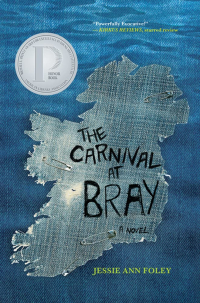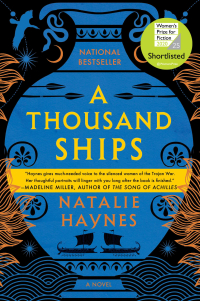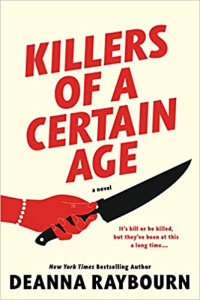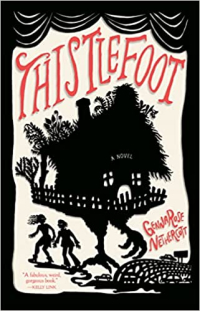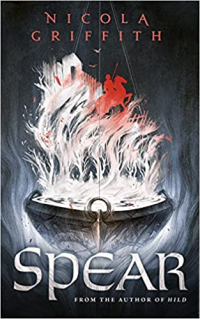Book Review: Babel: An Arcane History by R. F. Kuang
Saturday, December 31, 2022
If only one could engrave entire memories in silver, though Robin, to be manifested again and again for years to come—not the cruel distortion of the daguerreotype, but a pure and impossible distillation of emotions and sensations. For simple ink on paper was not enough to describe this golden afternoon; the warmth of un complicated friendship, all fights forgotten, all sins forgiven; the sunlight melting away the memory of the classroom chill; the sticky taste of lemon on their tongues and their startled, delighted relief.
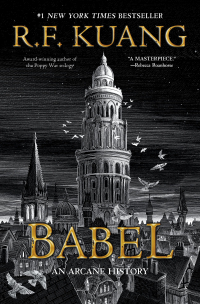 Some books make my thoughts go in strange directions, and Babel: An Arcane History by R. F. Kuang is one of those. It opens in Canton with a young, ill boy whose mother has just died from cholera. He is the last person living in his home after this epidemic has swept through it, and he expects his own death will happen very soon. But he is saved by an Englishman, who takes him out of his home, heals him with a bar of magical silver, and asks if he would like to go to England with him.
Some books make my thoughts go in strange directions, and Babel: An Arcane History by R. F. Kuang is one of those. It opens in Canton with a young, ill boy whose mother has just died from cholera. He is the last person living in his home after this epidemic has swept through it, and he expects his own death will happen very soon. But he is saved by an Englishman, who takes him out of his home, heals him with a bar of magical silver, and asks if he would like to go to England with him.
Thus begin the adventures of Robin Swift—we never learn his Chinese name—as he works to become a Babel translator. Babel is a school in Oxford, where gifted linguists fluent in several languages learn to make the magic that makes the silver bars work. The magic involves the subtle (and sometimes not-so-subtle) differences between the meaning of words in different languages. Along with the industrial revolution, this silver-and-words wrought magic has made England the most powerful nation in the world. But Robin comes to understand that the British people will never be able to see him as something other than a foreigner and that, even with his university stipend and world-class education, he is actually enslaved, eternally in debt to the people who “saved” him and the machinations of colonialism. When a war with China over opium begins to brew, he has to decide if he will uphold the status quo or fight against it.
This is a dense book. It is written as a linguistics sort of text, with explanations of etymology and footnotes scattered throughout. This isn’t a negative for me, but I can see it dissuading many readers; you have to be dedicated to the reading experience to get through this one, and the middle quarter of it felt a bit slow to me. It’s as much about friendship and forming strong relationships as it is about magic systems or linguistics, but at its heart it is a book that explores the real impacts of colonialism. When I finished it, in fact, I just had to put my head down and wonder if white people have ever done anything other than damage, manipulate, and steal from other cultures. It is a story that made me feel despair and the weight of how no one can escape the impacts of powerful government, something that’s just as true now as it was in Victorian England.
It’s not a happy, light, fun read, in other words.
It works both with and against the tropes of “dark academia” novels; there’s a little bit of Harry Potter resonance (which might be inevitable in any book set at an English boarding school I suppose) and some A Secret History but the writing style also lets it stand on its own.
I found it fascinating, enthralling, sad, and a bit frustrating.
And it’s the frustration that makes my brain go in unexpected directions, as this book made me thing about the difference in quality (for lack of a better word) between how a book is and how I want it to be.
I think the middle part felt slow to me because it felt very…distanced, I guess. That old “show, don’t tell” chestnut; I felt very told about Babel Tower and Robin’s experiences in Oxford, rather than being immersed in it. I wanted it to be immersive but because it isn’t does that lessen the book’s literary merit? Or is it just how it is, and it can still be a “good” book in all the senses of that word?
And I had some questions. Mostly, what was the story of Robin’s and Griffin’s mothers? How did the interact with Professor Lowell? Were they fortuitous accidents or were they conceived on purpose and either way, how did it happen? Maybe that seems extraneous to a nearly-600-page novel (with a small font!) but it felt like a gap to me.
So I sat Babel down when I finished it was a sort of literary confusion. It was successful: it made me feel things and it taught me things and it changed my perspective. I loved reading it, loved the characters and the ways they change. I was devasted by the choices they had to make and the reality they finally faced.
But I also left it a bit unsatisfied, even as I know some of the images will stick with me. It didn’t give me what I wanted it to give, which is only a measure of my own needs, not the book itself.
I am glad I read it and for what I learned, even if It also left me frustrated.
